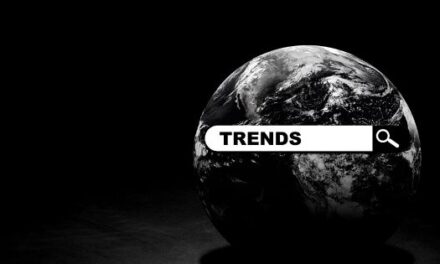This is the biology of leadership. Nothing happens in nature by chance. Complex systems in our body incentivise behavior that is in our best interests. Who we admire, love and trust create a chemical change in our body that compels us to follow. If you aspire to be a leader, do you know how to produce the hormonal change that creates leadership?

Happiness, pride, joy, and fulfillment are all chemically produced feelings. The chemicals predominately responsible for our pleasure are: endorphins, dopamine, serotonin, and oxytocin.
Endorphins are most commonly associated with runners high. It’s the determination hormone, increasing our drive for greater achievement. It allows us to experience pleasure when actually we are in physical pain. It’s the reason why intense exercise doesn’t hurt at the time but pain can set in moments after we complete the session.
Dopamine is the achievement hormone; it makes sure we get to the goal. Dopamine narrows our focus and responds strongly to visual cues. Each time we see the goal we get a hit of dopamine. As we get closer to the goal the dose increases until we are rewarded with a mega dose on its achievement. That is why company visions must be something we can see and goals must be written down. Without a visual cue there is no dopamine and no narrowing of focus.
Dopamine comes with a warning — its highly addictive. Dopamine can be released with the achievement of business goals, alcohol, gambling or checking the alerts on your mobile phone. As you tick off each email and notification you get another dose of dopamine. Like any addict chasing the next hit, an executive can make illogical choices on what they will sacrifice (e.g. family relationships, physical health) for success.
Endorphins and dopamine feel great. But they are selfish hormones; you don’t need anyone else to experience them. Push yourself to the limit and you will experience both at the same time. These hormones drive achievement but they don’t build leadership. They build an ultra competitive environment where everyone is in it for themselves. There is no fulfillment, love or trust.
Serotonin is the leadership hormone. The first step to creating the release of serotonin is creating a team environment where you feel safe, unified and supported. The trust that forms when team members come together allows them to take risks and do their best work.
Serotonin isn’t something that you can experience on your own. It creates feelings of pride, status and confidence. It is the reason that recognition and reward is so integral in creating a high performing team.
Its serotonin that creates that surge of pride that you experience when you receive an award. The people in the crowd that have supported you also experience the same feelings of pride at the same time. This is what serotonin is trying to do — create the bond between team member and leader, child and parent, player and coach. The great teams want to do it for the coach, to make them feel proud. The lesser teams are chasing dopamine and are focused on the championship ring or monetary reward.
Oxytocin is the best chemical of all. It creates the feeling of love, trust, and friendship — everything that makes us feel warm and fuzzy inside. It’s the reason why your mum likes having you home even when you are doing nothing. Its why we choose to sit next to someone, we want to be close to them, we feel safe. That intense feeling of safety that someone has your back.
A leader develops this by moments of generosity — giving of their time and expecting nothing in return. You can’t buy it; a pay rise won’t work. We put a premium on people who give their time and energy, as time is something that we never get back. An executive who sits down and says ‘how can I help you’ is a leader.
That is why the cost of leadership is self-interest. If you aren’t willing to forget your perks and give your time and energy when it matters most you probably shouldn’t be promoted. You might have power but you wont be a leader. You don’t get to do less work when you get promoted; you have to do more work. The work that you have to do is put yourself at risk to look after others.
This is the action that determines the success of a leader. Repetitively making the effort to make another feel safe and supported is what creates the strong bond that allows the release of oxytocin. It isn’t as simple as chasing endorphins by going for a run; it takes time, just like dating. How long it takes — I am not sure. It will be different for everyone, but when oxytocin is in our blood it inhibits addiction, boosts our immunity and helps with creativity and problem solving.
The difficult part about leadership is that you don’t have enough time or energy to give it to everyone. You just can’t. In an effective leadership structure your job is to make everyone you know by name feel safe, empowered and supported. This must flow down through the organisational chart. Every level looking after the one below, until it reaches the most important exchange: with your customer.
The whole organisation must believe that leadership is not a rank it’s a choice. If you decide to look after the person to the left and right of you — you have become a leader. Your ability to make others feel safe is what will make you great.






















